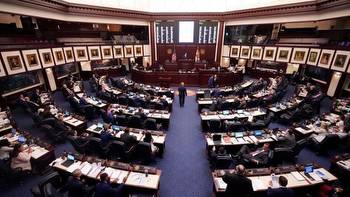How Different US States Are Approaching Gambling Regulations?

Nowadays, gambling regulations in the US have finally been relaxed and both sportsbooks and casinos have reasons to rejoice. Gambling operators are now able to offer their services legally, provided that the state they operate in has made it possible and has passed the necessary bills that will legalize gambling in a given state.
As you may already know, the infamous The Professional and Amateur Sports Protection Act of 1992 has effectively outlawed sports betting across the entire nation. However, on May 14th, 2018, The US Supreme Court deemed this law unconstitutional and each state has been given permission to regulate online gambling as they see fit.
Some states have already made the necessary arrangements to legalize gambling, some states are in the process of doing so. Then again, some states are indecisive, while a few won’t budge any time soon or ever for that matter, even though tax gains from legalized gambling will be quite lucrative. So with that in mind, let’s have a look at how different US states are approaching gambling regulations.
States that have effectively legalized online betting and gambling
Now that land-based and online gambling has been legalized, many states have immediately begun preparations to pass bills and regulate gambling within their borders. The US Supreme Court ruling also applies to The Unlawful Internet Gambling Enforcement Act of 2006 (UIGEA) which affects online gambling and its regulation within state borders.
Therefore, each state can either regulate or altogether prohibit any form of gambling if they decide to do so. As mentioned before, many states have already legalized or are in the process of regulating gambling within their borders. The only exception was Nevada which was exempt from these laws in the first place. That said, Delaware became the first state to implement a full-size sports betting endeavor on June, 5th, 2018 right after Nevada. New Jersey followed soon after on June 11th, 2018.
After NJ, Mississippi, West Virginia, New Mexico and Pennsylvania also regulated gambling within their borders so all aforementioned states were the first seven states to seize the opportunity right after the court ruling, so it looks like they’ve been prepared and waiting for the Court’s decision. By May 2020, 30 states, including Washington D.C., already have legalized betting and gambling regulations implemented.
Indecisive US states
Some states are willing to pass the bills and regulate gambling but they haven’t made much progress on the matter, yet. The real obstacle is in deciding which department will be responsible and will, therefore, oversee state-regulated sportsbooks. A good example of this is Florida, where that conversation has been going back and forth on the matter for a while now.
Florida began making preparations back in 2021 but still has no regulated sportsbooks as of 2023. Texas, on the other hand, made a sudden decision in the 2023 legislative season and five bills were introduced to legalize sports betting and casino gambling, but opposed bills were also introduced suggesting harsher punishments and penalties for everyone who breaks Texas gambling laws.
Then there’s the matter of Kentucky, which was indecisive up until March 2023 when they passed the sports betting bill with a 25-12 win in the Senate and a majority vote of 63-34 in the House, appointing the Kentucky Horse Racing Commission as the regulatory body to oversee state gambling and sports betting. Moreover, the state of California lead a serious campaign for betting and gambling regulations in 2022 and bills even passed in the Senate but were voted down by Californians. A new attempt to pass the bills will be held in 2023.
US states that did not or will not regulate gambling
As mentioned before, there are some states in the US that simply don’t want to budge when it comes to regulating sports betting and online gambling. Good examples are Utah and Hawaii, which are quite firm in their stances on gambling and are likely to never regulate it to begin with.
Other states where gambling is illegal had a few attempts to introduce regulatory bills but were immediately dismissed or voted down by the Senate. For example, a bill was introduced in Vermont back in 2021 but it was voted down and no further attempts have been made to regulate gambling in this state.
The same goes for Georgia, where a group of legislators introduced a bill to regulate gambling which wouldn’t have had to pass a resident vote. However, on March 6th, 2023, Georgia Senate voted it down completely.
Several similar attempts have also been made in Alabama but the Senate outright dismissed all of them. The same goes for Alaska, Idaho, Minnesota, Missouri, North Dakota, South Carolina and Texas. Wisconsin, however, made some leeway and legalized retail betting, while other forms of gambling are strictly prohibited.
Projected gambling revenue in the US
One of the main reasons why the US Supreme Court made the decision it made is due to projected revenue growth from legalized gambling. To everyone’s surprise, the commercial gross revenue of the gambling industry in the US went from $29.98 billion in 2020 to $60.42 billion in 2022, which is double the amount in just two years.
Tax revenue from regulating such activities within each state’s borders can significantly fill their coffers. That was also one of the main reasons why the state of New York managed to pass regulatory gambling bills. If we look at 2021, for example, when commercial gross revenue for the gambling industry was $53 billion, that revenue generated $11.7 billion in taxes for the 33 states that had regulated gambling at that time.
So it’s a significant amount of income for the states that can later be used for other projects regarding urban and cultural development. So the Supreme Court ruling was a win-win scenario for both gambling operators and states that authorized gambling within their borders. The gambling and tax revenue is projected to gain significant growth each year so this lucrative endeavor is something everyone is looking forward to.
Will other states regulate gambling in the future?
If we look at the numbers and revenue, it would be logical to assume that states that haven’t regulated or legalized gambling so far will do so in the future. However, that is very uncertain because a lot of states base their regulations and laws on principles. So if they are not swayed by potential monetary gains, it’s unlikely that anything else may change their minds.
But you never know what may happen in the future, so we’ll just have to wait and see. The fact of the matter is that gambling in the US has been outlawed for so long, it’s only natural that the process of legalizing gambling now will go slower than expected. Although some states have jumped at the opportunity as soon as it was available to them, other states must weigh their options and make a lot of decisions before even considering passing the necessary bills.
All in all, there’s no expiration date to making the decision so it’s no wonder that some states are stalling. Things may change drastically in the coming years but nothing is certain. Except for Utah, there are slim to no chances that Utah will ever even consider regulating gambling let alone actually doing it.

































